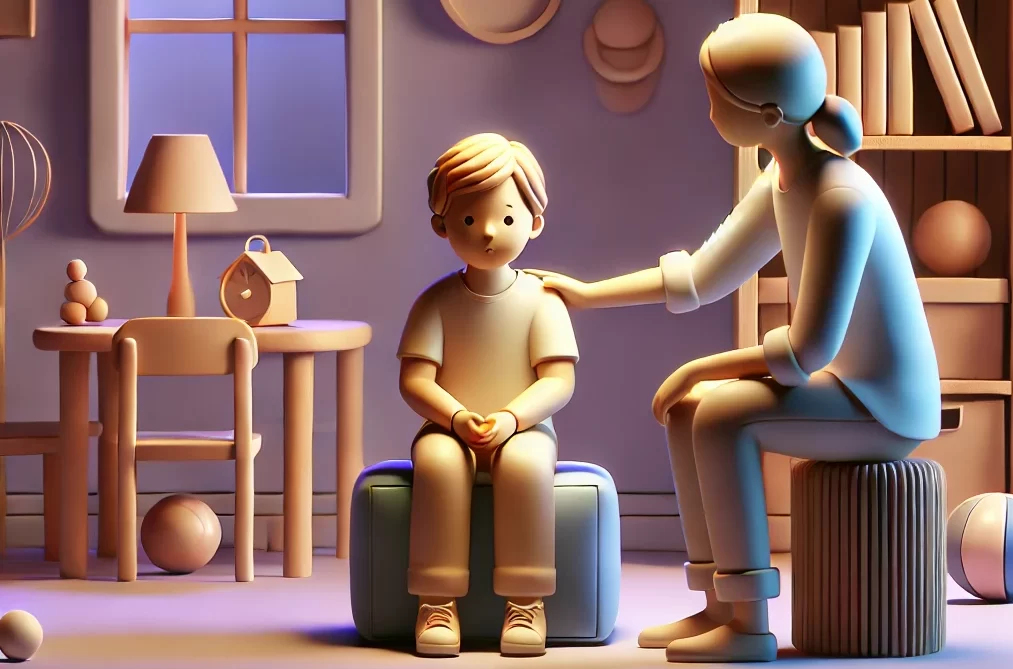Anxiety Disorders in Children: Signs, Causes, and Support
Anxiety is a normal and natural response to stress, and it’s common for children to feel anxious at certain points in their lives, such as starting school or facing a new challenge. However, for some children, anxiety becomes persistent, affecting their everyday life, relationships, and development.
Recognizing Signs of Anxiety in Children
Signs that your child may be experiencing anxiety include:
- Difficulty Concentrating: Trouble focusing on tasks or activities.
- Sleep Issues: Difficulty falling or staying asleep, or waking frequently at night.
- Changes in Appetite: Eating less or showing little interest in food.
- Irritability and Anger: Getting upset or out of control during outbursts.
- Constant Worrying: Frequent negative thoughts or worries.
- Physical Symptoms: Feeling tense, fidgety, stomachaches, frequent trips to the bathroom, or unexplained pain.
- Clinginess: Reluctance to separate from parents or caregivers.
- Withdrawal: Avoidance of activities they previously enjoyed.
Common Types of Anxiety in Children
- Separation Anxiety: Fear of being apart from parents or caregivers.
- Social Anxiety: Fear of social situations and interacting with others.
- Specific Phobias: Fear of particular objects or situations, such as animals or heights.
- Generalized Anxiety Disorder (GAD): Worrying excessively about various aspects of daily life.
- School-Based Anxiety: Stress and anxiety related to school, such as tests, social interactions, or bullying.
When to Seek Help
Consider seeking professional help for your child’s anxiety if:
- Anxiety persists for a prolonged period and affects daily activities.
- Efforts to manage their anxiety at home aren’t effective.
- It impacts their development, schooling, or social life.
- They exhibit physical symptoms like frequent headaches, stomachaches, or constant fatigue.
Causes of Anxiety Disorders in Children
The exact causes can vary, but factors include:
- Genetics: A family history of anxiety can increase a child’s risk.
- Trauma or Stressful Life Events: Illness, moving, parental separation, or loss of a loved one.
- Medical Conditions: Conditions like ADHD or autism spectrum disorders may involve anxiety symptoms.
- Environment and Life Events: Bullying, academic pressure, and other significant stressors.
How to Support an Anxious Child
- Listen and Offer Reassurance: Encourage open conversations about their worries without judgment.
- Maintain Routine: Consistent daily routines can offer a sense of stability.
- Encourage Gradual Exposure: Support them in facing their fears at a pace they’re comfortable with.
- Seek Professional Help: Consider speaking with a GP, school staff, or mental health professionals.
Professional Support Options
GP Consultation: Your child’s GP can offer advice, refer you to specialists, or suggest resources.
Child and Adolescent Mental Health Services (CAMHS):
- Includes professionals like psychologists, psychiatrists, and specialized nurses.
- Provides tailored support for children experiencing anxiety.
Youth Counseling Services: Trained counselors or therapists can provide a safe space for your child to express their feelings.
Treatment Options
- Psychological Therapies: Cognitive Behavioral Therapy (CBT) is often effective in helping children manage anxiety.
- Medication: In some cases, medication may be recommended alongside therapy.
Helpful Resources
- Support Groups: Organizations like YoungMinds and Anxiety UK offer resources and support for children and parents.
- Youth Helplines: Telephone or online helplines can be helpful for children who prefer talking to someone outside their immediate circle.







